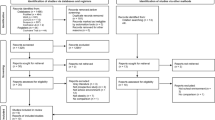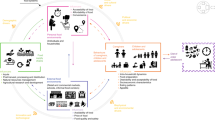Abstract
Food waste reduction is essential for supporting the sustainability of food systems. Wasteful behaviours are difficult to change after they have been formed, highlighting the importance of early interventions. Here we present an assessment of school plate food waste from 29 countries, and examine the environmental implications, causes, and interventions. School plate waste ranged from 4% to 46% per capita per meal and was positively correlated with country income levels. On a global scale, this waste embodies ∼150 Mha of cropland and ∼770 MtCO2e of greenhouse gas emissions; hence, reducing school plate food waste offers potentially large environmental gains. We propose a comprehensive, multistakeholder framework centred around sustainable food education that cultivates food systems knowledge and skills, and an appreciation for nature and food labour to reduce the psychological distance between youth and their food waste. To effectively implement the framework requires the support and engagement of families, communities and the broader society beyond the confines of schools.
This is a preview of subscription content, access via your institution
Access options
Access Nature and 54 other Nature Portfolio journals
Get Nature+, our best-value online-access subscription
$29.99 / 30 days
cancel any time
Subscribe to this journal
Receive 12 digital issues and online access to articles
$119.00 per year
only $9.92 per issue
Buy this article
- Purchase on SpringerLink
- Instant access to full article PDF
Prices may be subject to local taxes which are calculated during checkout





Similar content being viewed by others
Data availability
All the data that support this study are from public sources clearly referenced in the manuscript with most of the data provided in the Supplementary Information. Detailed calculation processes are provided with this paper as Supplementary Data. Source data are provided with this paper.
References
Foley, J. A. et al. Solutions for a cultivated planet. Nature 478, 337–342 (2011).
Global Food Losses and Food Waste: Extent, Causes and Prevention (FAO, 2011); https://www.fao.org/4/mb060e/mb060e00.pdf
Food Waste Index Report 2021 (UNEP, 2021); https://wedocs.unep.org/bitstream/handle/20.500.11822/35280/FoodWaste.pdf
Moving Forward on Food Loss and Waste Reduction (FAO, 2019).
Mbow, C. et al. in Climate Change and Land: An IPCC Special Report on Climate Change, Desertification, Land Degradation, Sustainable Land Management, Food Security, and Greenhouse Gas Fluxes in Terrestrial Ecosystems (eds Shukla, P. R. et al.) https://www.ipcc.ch/site/assets/uploads/sites/4/2021/02/08_Chapter-5_3.pdf (IPCC, 2019).
Kummu, M. et al. Lost food, wasted resources: global food supply chain losses and their impacts on freshwater, cropland, and fertiliser use. Sci. Total Environ. 438, 477–489 (2012).
Food Wastage Footprint Full-Cost Accounting: Final Report (FAO, 2014).
Flanagan, K., Robertson, K. & Hanson, C. Reducing food loss and waste: setting a global action agenda. World Resour. Inst. https://doi.org/10.46830/wrirpt.18.00130 (2019).
Sanu, M. 7 inspiring government food waste campaigns foodservice can learn from. Winnow https://blog.winnowsolutions.com/global-food-waste-campaigns (2019).
Law of the People’s Republic of China on Food Waste (The National People’s Congress of the People’s Republic of China, 2021).
Blondin, S. & Attwood, S. Making food waste socially unacceptable: what behavioral science tells us about shifting social norms to reduce household food waste. World Resour. Inst. https://doi.org/10.46830/wriwp.21.00072 (2022).
Wood, W. & Neal, D. T. Healthy through habit: interventions for initiating & maintaining health behavior change. Behav. Sci. Policy 2, 71–83 (2016).
Reisch, L., Eberle, U. & Lorek, S. Sustainable food consumption: an overview of contemporary issues and policies. Sustain. Sci. Pract. Policy 9, 7–25 (2013).
Kelder, S. H., Perry, C. L., Klepp, K. I. & Lytle, L. L. Longitudinal tracking of adolescent smoking, physical activity, and food choice behaviors. Am. J. Public Health 84, 1121–1126 (1994).
Birch, L. L. & Davison, K. K. Family environmental factors influencing the developing behavioral controls of food intake and childhood overweight. Pediatr. Clin. North Am. 48, 893–907 (2001).
Murimi, M. W. et al. Factors Influencing efficacy of nutrition education interventions: a systematic review. J. Nutr. Educ. Behav. 49, 142–165.e1 (2017).
Rajan, J., Fredeen, A. L., Booth, A. L. & Watson, M. Measuring food waste and creating diversion opportunities at Canada’s Green UniversityTM. J. Hunger Environ. Nutr. 13, 573–586 (2018).
Wu, Y., Tian, X., Li, X., Yuan, H. & Liu, G. Characteristics, influencing factors, and environmental effects of plate waste at university canteens in Beijing, China. Resour. Conserv. Recycl. 149, 151–159 (2019).
Li, J., Li, W., Wang, L. & Jin, B. Environmental and cost impacts of food waste in university canteen from a life cycle perspective. Energies 14, 5907 (2021).
García-Herrero, L., De Menna, F. & Vittuari, M. Food waste at school. The environmental and cost impact of a canteen meal. Waste Manag. 100, 249–258 (2019).
Visschers, V. H. M., Gundlach, D. & Beretta, C. Smaller servings vs. information provision: results of two interventions to reduce plate waste in two university canteens. Waste Manag. 103, 323–333 (2020).
Malefors, C., Sundin, N., Tromp, M. & Eriksson, M. Testing interventions to reduce food waste in school catering. Resour. Conserv. Recycl. 177, 105997 (2022).
Izumi, B., Akamatsu, R., Shanks, C. B. & Fujisaki, K. Exploring factors that minimize school lunch waste in Tokyo elementary schools. J. Nutr. Educ. Behav. 51, S6 (2019).
Tilman, D., Balzer, C., Hill, J. & Befort, B. L. Global food demand and the sustainable intensification of agriculture. Proc. Natl Acad. Sci. USA 108, 20260–20264 (2011).
Houthakker, H. S. An international comparison of household expenditure patterns, commemorating the centenary of Engel’s law. Econometrica 25, 532–551 (1957).
Ritchie, H., Roser, M. & Rosado, P. CO2 and Greenhouse Gas Emissions (Our World in Data, 2020).
Arable Land (Hectares) (World Bank, 2021); https://data.worldbank.org/indicator/AG.LND.ARBL.HA?most_recent_value_desc=true
Lagorio, A., Pinto, R. & Golini, R. Food waste reduction in school canteens: evidence from an Italian case. J. Clean. Prod. 199, 77–84 (2018).
Liz Martins, M., Rodrigues, S. S. P., Cunha, L. M. & Rocha, A. Factors influencing food waste during lunch of fourth-grade school children. Waste Manag. 113, 439–446 (2020).
Thiagarajah, K. & Getty, V. M. Impact on plate waste of switching from a tray to a trayless delivery system in a university dining hall and employee response to the switch. J. Acad. Nutr. Diet. 113, 141–145 (2013).
Richardson, R., Prescott, M. P. & Ellison, B. Impact of plate shape and size on individual food waste in a university dining hall. Resour. Conserv. Recycl. 168, 105293 (2021).
Kim, K. & Morawski, S. Quantifying the impact of going trayless in a university dining hall. J. Hunger Environ. Nutr. 7, 482–486 (2012).
Pinto, R. S., Pinto, R. M. D. S., Melo, F. F. S., Campos, S. S. & Cordovil, C. M.-D.-S. A simple awareness campaign to promote food waste reduction in a university canteen. Waste Manag. 76, 28–38 (2018).
Vidal-Mones, B., Diaz-Ruiz, R. & Gil, J. M. From evaluation to action: testing nudging strategies to prevent food waste in school canteens. Waste Manag. 140, 90–99 (2022).
Antón-Peset, A., Fernandez-Zamudio, M.-A. & Pina, T. Promoting food waste reduction at primary schools. A case study. Sustainability 13, 600 (2021).
Liz Martins, M., Rodrigues, S. S., Cunha, L. M. & Rocha, A. Strategies to reduce plate waste in primary schools—experimental evaluation. Public Health Nutr. 19, 1517–1525 (2016).
Ellison, B., Savchenko, O., Nikolaus, C. J. & Duff, B. R. L. Every plate counts: evaluation of a food waste reduction campaign in a university dining hall. Resour. Conserv. Recycl. 144, 276–284 (2019).
Ziegler, A. M. et al. An ecological perspective of food choice and eating autonomy among adolescents. Front. Psychol. 12, 654139 (2021).
Derqui, B. & Fernandez, V. The opportunity of tracking food waste in school canteens: guidelines for self-assessment. Waste Manag. 69, 431–444 (2017).
Torrijos, V., Calvo Dopico, D. & Soto, M. Integration of food waste composting and vegetable gardens in a university campus. J. Clean. Prod. 315, 128175 (2021).
Prescott, M. P., Grove, A., Bunning, M. & Cunningham-Sabo, L. Characterizing and assessing the quality of state K-12 share table policies as a potential mechanism to reduce food waste and promote food security. J. Nutr. Educ. Behav. 52, 21–30 (2020).
Rossiter, M., Glanville, T., Taylor, J. & Blum, I. School food practices of prospective teachers. J. Sch. Health 77, 694–700 (2007).
Lavelle, F. et al. Fun with food—a parent–child community cooking intervention reduces parental fear and increases children’s perceived competence. Appetite 180, 106347 (2023).
Gibson, S., Metcalfe, J. J., McCaffrey, J., Allison, T. & Prescott, M. P. Nutrition environment at food pantries improves after fresh produce donation program. J. Nutr. Educ. Behav. 54, 432–441 (2022).
Environmental Policy Bulletin—Volume-Based Waste Fee System (Ministry of Environment, Republic of Korea, 2003).
Kwon, H. Seoul reduces food waste by 250,000 tons in 10 years… 111.28 million 3L bags (in Korean). News1 (6 November 2023).
Motley, J. Mottainai: in Japan, creativity is key to a no-waste ideal. BBC (25 January 2024).
Thyberg, K. L. & Tonjes, D. J. Drivers of food waste and their implications for sustainable policy development. Resour. Conserv. Recycl. 106, 110–123 (2016).
Ministry of Agriculture, Forestry and Fisheries (Japan) Promotion of Shokuiku (Food and Nutrition Education) (MAFF, 2022); https://www.maff.go.jp/e/policies/tech_res/shokuiku.html
Nutrition Education in Primary Schools, Vol. 1: The Reader (FAO, 2005).
Ministry of Agriculture, Forestry, and Fisheries (Japan) Policies for the Promotion of Shokuiku (White Paper on Shokuiku) The Fiscal Year 2022 Edition (MAFF, 2022); https://www.maff.go.jp/e/data/publish/attach/pdf/index-216.pdf
Poore, J. & Nemecek, T. Reducing food’s environmental impacts through producers and consumers. Science 360, 987–992 (2018).
Zhu, J. et al. Cradle-to-grave emissions from food loss and waste represent half of total greenhouse gas emissions from food systems. Nat. Food 4, 247–256 (2023).
FAOSTAT (FAO, 2020); https://www.fao.org/faostat/en/#data/GPP
2006 IPCC Guidelines for National Greenhouse Gas Inventories (IPCC, 2006); https://www.ipcc-nggip.iges.or.jp/public/2006gl/
What a Waste 2.0: A Global Snapshot of Solid Waste Management to 2050 (World Bank, 2018).
Dietary compositions by Commodity Group (Our World in Data, 2023); https://ourworldindata.org/grapher/dietary-compositions-by-commodity-group
LICs, LMICs, UMICs, and HICs: classifying economies for analytical purposes. World Bank Blogs https://blogs.worldbank.org/en/opendata/lics-lmics-umics-and-hics-classifying-economies-analytical-purposes (2014).
SDG 4 Data Digest 2019: How to Produce and Use the Global and Thematic Education Indicators (UNESCO, 2019); https://uis.unesco.org/en/topic/sustainable-development-goal-4
Bronfenbrenner, U. Toward an experimental ecology of human development. Am. Psychol. 32, 513–531(1977).
Stokols, D. Establishing and maintaining healthy environments: toward a social ecology of health promotion. Am. Psychol. 47, 6–22 (1992).
Golden, S. D., McLeroy, K. R., Green, L. W., Earp, J. A. L. & Lieberman, L. D. Upending the social ecological model to guide health promotion efforts toward policy and environmental change. Health Educ. Behav. 42, 8S–14S (2015).
Acknowledgements
This study was supported by the National Natural Science Foundation of China (grant numbers 71874178, X.L., and 52370193, Y.Y.). We thank Y. Gong for helping check data and provide suggestions during the manuscript revision.
Author information
Authors and Affiliations
Contributions
X.L. and Y.Y. conceived the research. L.F., R.L., W.L. and J.S. collected data. L.F. and R.L. performed data processing, data analysis and data visualization. L.F., R.L. and Y.Y. wrote the manuscript. X.L. and Y.Y. provided suggestions. M.P.P. and Y.Y. revised the manuscript.
Corresponding authors
Ethics declarations
Competing interests
The authors declare no competing interests.
Peer review
Peer review information
Nature Food thanks Christine Costello, David Just and Christian Reynolds for their contribution to the peer review of this work.
Additional information
Publisher’s note Springer Nature remains neutral with regard to jurisdictional claims in published maps and institutional affiliations.
Supplementary information
Supplementary Information
Supplementary Figs. 1–9, Discussion, Tables 1–4 and description of Supplementary Data.
Supplementary Data 1–7
Supplementary Data 1–7.
Source data
Source Data Fig. 1
Statistical source data.
Source Data Fig. 2
Statistical source data.
Source Data Fig. 3
Statistical source data.
Source Data Fig. 4
Statistical source data.
Rights and permissions
Springer Nature or its licensor (e.g. a society or other partner) holds exclusive rights to this article under a publishing agreement with the author(s) or other rightsholder(s); author self-archiving of the accepted manuscript version of this article is solely governed by the terms of such publishing agreement and applicable law.
About this article
Cite this article
Feng, L., Luo, R., Liu, X. et al. Global school plate waste estimates highlight the need for building a sustainable food education system. Nat Food (2024). https://doi.org/10.1038/s43016-024-01046-2
Received:
Accepted:
Published:
DOI: https://doi.org/10.1038/s43016-024-01046-2



